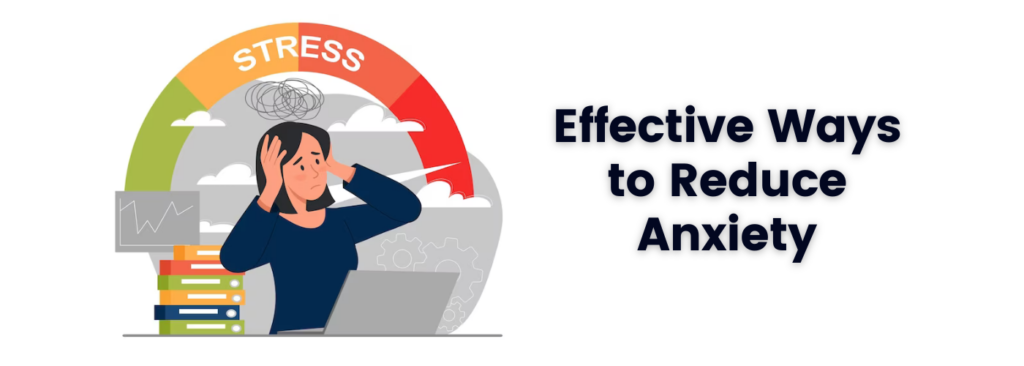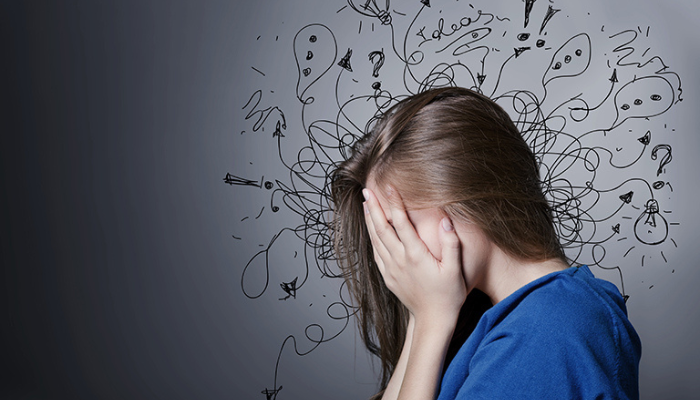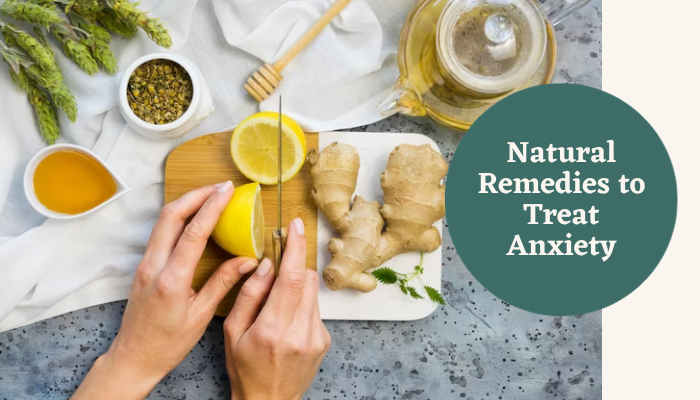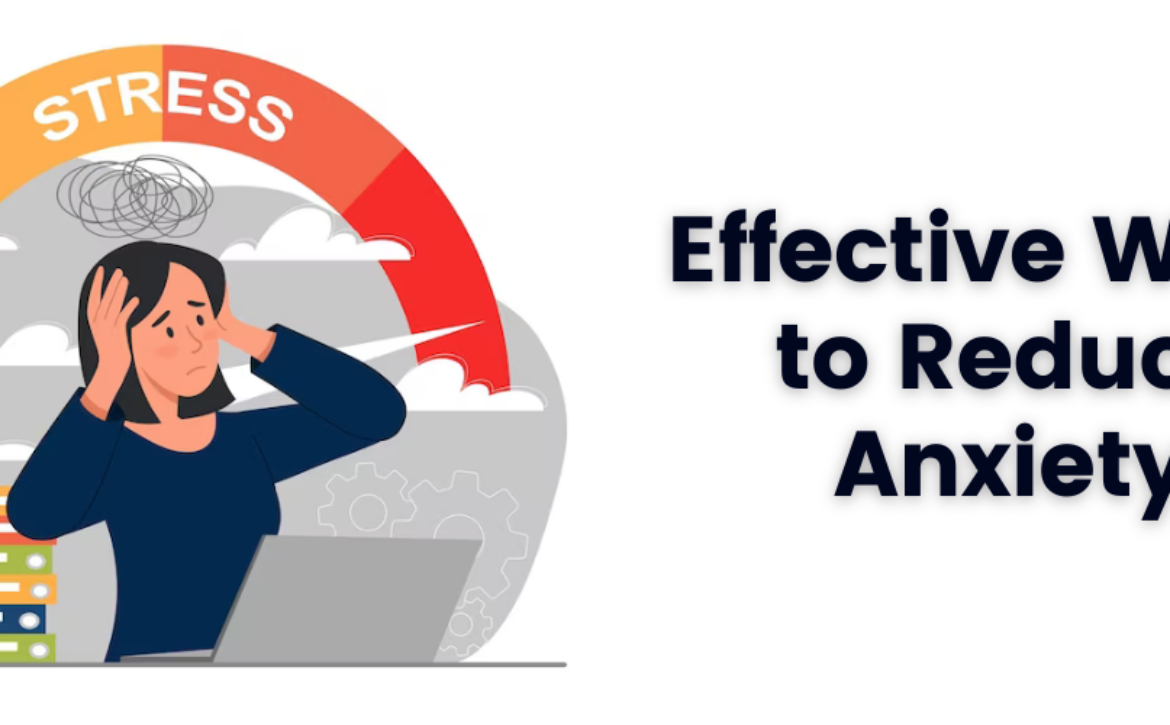10 Effective Ways to Reduce Anxiety

Anxiety is a common and natural response to stress, but when it becomes overwhelming and persistent, it can significantly impact our daily lives. Understanding the symptoms and seeking effective ways to reduce anxiety is essential for maintaining mental well-being. In this blog, we will explore the various aspects of anxiety, its symptoms, social anxiety, and most importantly, 10 effective ways to reduce anxiety. Additionally, we’ll delve into natural remedies that can complement traditional anxiety treatments.
What is Anxiety?
Anxiety is a natural response to stress, characterised by feelings of fear, apprehension, or uneasiness. It’s a normal part of life, helping us stay alert in challenging situations. However, when anxiety becomes excessive or prolonged, it can interfere with daily activities and overall quality of life. Generalized Anxiety Disorder (GAD) is a common form of anxiety characterised by excessive worrying and tension, even when there’s little or no apparent cause.
Symptoms of Anxiety
Understanding the symptoms of anxiety is the first step towards effective management. Common symptoms include:
- Persistent worry or fear
- Restlessness or irritability
- Difficulty concentrating
- Muscle tension
- Fatigue
- Sleep disturbances
- Increased heart rate
- Sweating
- Nausea or stomach discomfort
Social Anxiety Symptoms
Social anxiety is a specific form of anxiety characterised by intense fear of social situations. Symptoms of social anxiety may include:
- Fear of being judged or criticized
- Avoidance of social situations
- Physical symptoms like blushing, sweating, or trembling in social settings
- Difficulty making eye contact
- Fear of public speaking or performing
How can I Treat Anxiety?

Effective treatment for anxiety often involves a combination of therapy, medication, and lifestyle changes. It’s crucial to consult with a healthcare professional for personalised advice. Common anxiety treatments include:
- Cognitive Behavioural Therapy (CBT): CBT helps identify and change negative thought patterns and behaviour associated with anxiety.
- Medication: Antidepressants, benzodiazepines, or beta-blockers may be prescribed in some cases to manage anxiety symptoms.
- Lifestyle Changes: Healthy lifestyle habits, such as regular exercise, a balanced diet, and sufficient sleep, contribute to overall well-being and can help manage anxiety.
10 Effective Ways to Reduce Anxiety
In addition to professional treatment, Here are 10 effective ways to reduce anxiety in your daily life:
1) Practice Mindfulness Meditation
Mindfulness meditation involves focusing on the present moment without judgement. Regular practice can help reduce anxiety by promoting relaxation and improving self-awareness.
2) Deep Breathing Exercises
Deep breathing exercises, such as diaphragmatic breathing, can activate the body’s relaxation response, reducing anxiety and promoting a sense of calm.
3) Regular Exercise
Physical activity has been shown to reduce symptoms of anxiety by releasing endorphins, the body’s natural mood elevators. Aim for at least 30 minutes of moderate exercise most days of the week.
4) Limit Caffeine and Sugar Intake
Caffeine and sugar can contribute to feelings of anxiety and jitteriness. Consider reducing your intake and opting for healthier alternatives like herbal tea or water.
5) Establish a Consistent Sleep Routine
Lack of sleep can exacerbate anxiety symptoms. Establish a regular sleep routine, aiming for 7-9 hours of quality sleep each night.
6) Set Realistic Goals
Break larger tasks into smaller, more manageable goals. This approach can help prevent feeling overwhelmed and reduce anxiety associated with achieving objectives.
7) Connect with Supportive People
Share your feelings with friends, family, or a mental health professional. Having a support system can provide emotional validation and practical assistance.
8) Create a Relaxation Space
Designate a space in your home for relaxation. It could be a cozy corner with comfortable cushions, soft lighting, and calming scents.
9) Establish Boundaries
Learn to say no when needed and set clear boundaries. Over committing can lead to stress and anxiety.
10) Journaling
Keeping a journal allows you to express your thoughts and emotions, providing a constructive outlet for anxiety. It can also help identify patterns and triggers.
Natural Remedies to Treat Anxiety

In addition to conventional treatments, some natural remedies may complement anxiety management:
- Herbal Supplements:
- Certain herbs, such as valerian root, passionflower, and chamomile, have mild calming effects. Consult with a healthcare professional before using herbal supplements.
- Aromatherapy:
- Essential oils like lavender, chamomile, and bergamot can promote relaxation when used in aromatherapy.
- Regular Exposure to Nature:
- Spending time in nature has been linked to reduced anxiety levels. Take walks in the park, go hiking, or simply sit in a garden to enjoy the calming effects of nature.
- Limiting Screen Time:
- Excessive screen time, especially before bedtime, can contribute to anxiety. Set boundaries for screen use and incorporate screen-free activities into your routine.
Conclusion
Reducing anxiety involves a combination of understanding its symptoms, seeking appropriate treatment, and adopting healthy lifestyle habits. The 10 effective ways mentioned above provide practical strategies to manage anxiety on a daily basis. Additionally, natural remedies can be explored in consultation with healthcare professionals for a holistic approach to anxiety management. Remember, everyone’s journey with anxiety is unique, and finding the right combination of strategies may take time. Be patient, seek support, and prioritise your mental well-being. If you are experiencing persistent or severe anxiety, consult with a healthcare professional for personalised guidance and support.

